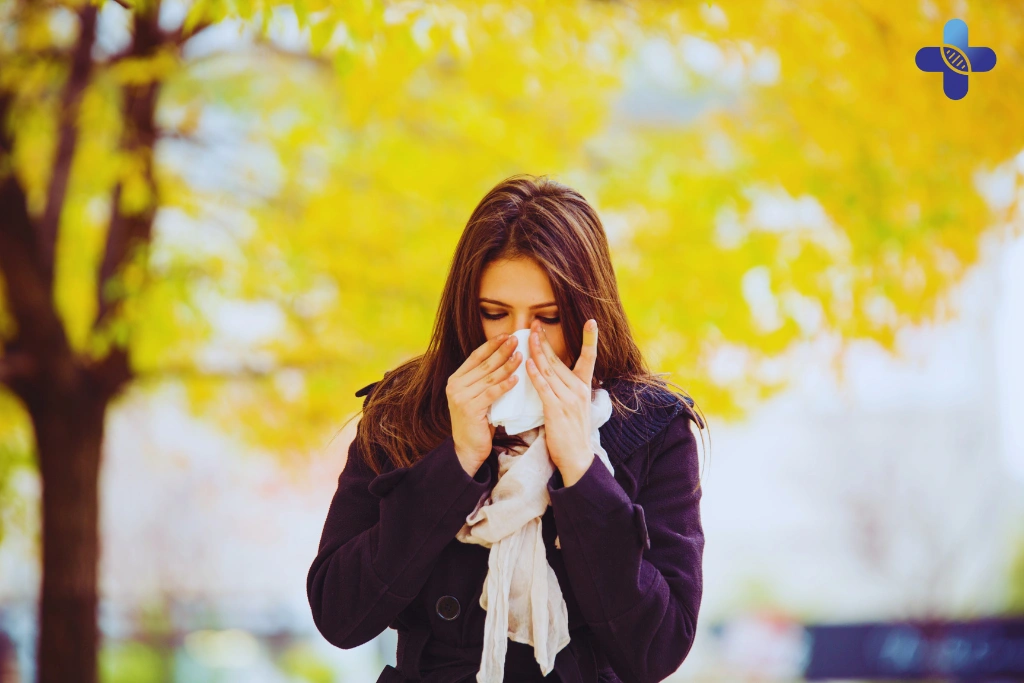Bali offers endless beauty, from its stunning beaches to vibrant culture, but staying healthy is the key to enjoying every moment. Many travelers underestimate how easy it is to get sick in a tropical environment, where factors like heat, unfamiliar food, and mosquito-borne illnesses can disrupt your plans. This traveler’s guide to avoiding illness in Bali combines practical advice with proven health recommendations from WHO and Indonesia’s Ministry of Health. Whether you’re here for a short holiday or a long stay, these tips will help you protect your wellbeing and know when to seek support from a trusted Medical Clinic in Bali.
Your Guide to Avoiding Unexpected Illness in Bali

Bali’s charm draws millions of visitors each year, but even in paradise, unexpected illness can quickly turn a dream trip into a challenge. Many travelers fall sick during their stay, not because Bali is inherently unsafe, but because they overlook simple preventive measures. Factors like tropical heat, changes in diet, and exposure to unfamiliar bacteria or viruses can affect your body more than you might expect. By understanding these risks early, you can avoid losing precious vacation days to preventable health issues.
Your health is the foundation of every great travel experience, and in Bali’s tropical environment, proactive care is essential. Taking preventive steps—such as staying hydrated, practicing good food hygiene, and protecting yourself from mosquito bites—can make the difference between a smooth holiday and days spent in bed. With guidance from reputable health sources like WHO and the Indonesian Ministry of Health, plus easy access to trusted services such as Medical Clinic Bali and Bali Medical Clinic, you can confidently explore the island while keeping your wellbeing in check.
Understanding the Main Health Risks in Bali

Bali’s tropical environment is both its greatest charm and a factor travelers must adapt to. The combination of heat, humidity, and different food and water sources creates conditions where illnesses can occur more easily if precautions are ignored. Many of these health risks are avoidable with awareness and a few smart habits. Understanding the common challenges visitors face will help you plan ahead, so your time on the island is filled with adventure rather than recovery.
Whether you’re here for a quick getaway or an extended stay, knowing the risks allows you to respond effectively if you start feeling unwell. Conditions such as dehydration, mosquito-borne illnesses, and food-related digestive issues are the most frequent culprits. By staying informed and having access to reliable healthcare through a Medical Clinic in Bali or Bali Medical Clinic, you can minimize disruptions to your travel plans.
Tropical Climate Effects on the Body
The warm, humid climate in Bali can take a toll on your body, especially if you’re not accustomed to tropical weather. Heat exposure increases fluid loss through sweating, leading to dehydration, fatigue, and in some cases, heat exhaustion. These symptoms can develop quickly if you are active outdoors without adequate hydration and rest. Visitors often underestimate the strength of the sun, which can also contribute to heat-related illness.
Preventing these effects means drinking enough clean water, taking regular shade breaks, and adjusting activity levels during peak heat hours. According to WHO and Kemenkes guidelines, travelers should increase fluid intake, wear light clothing, and use hats or umbrellas to reduce sun exposure. If symptoms escalate, seeking care at a trusted Medical Clinic Bali ensures proper assessment and treatment before the condition worsens.
Mosquito-Borne Illnesses and Prevention
Mosquito-borne diseases such as dengue fever and chikungunya are present in Bali, with risks increasing during the rainy season. These illnesses are transmitted through bites from infected mosquitoes, which are active during both daytime and nighttime. Even healthy travelers can fall ill quickly, with symptoms including fever, joint pain, and severe fatigue.
Prevention is key, and simple measures can greatly reduce your risk. Use insect repellent with DEET or picaridin, wear long sleeves and trousers in mosquito-prone areas, and stay in accommodations with screened windows or mosquito nets. For added peace of mind, knowing that a Bali Medical Clinic is nearby ensures you can get quick testing and treatment if you suspect an infection. Internal resources like Chikungunya in Bali provide further insights on prevention.
Food and Water Hygiene
Bali’s vibrant food culture is a highlight for many visitors, but unfamiliar food handling practices can sometimes lead to stomach issues. Consuming contaminated food or water can cause food poisoning, traveler’s diarrhea, or even more serious infections. Tap water is not safe for drinking in Bali, and improperly washed produce or undercooked food can increase health risks.
To stay safe, opt for bottled or filtered water and dine at reputable establishments with high hygiene standards. Look for busy venues with a steady turnover of food, which indicates freshness. Following these habits greatly reduces the likelihood of digestive problems, and if symptoms do occur, a Medical Clinic in Bali can provide rehydration therapy and medical support to speed recovery.
Essential Tips to Stay Healthy

Good health while traveling in Bali often comes down to a few consistent habits. Simple daily actions can significantly lower your risk of illness and keep your energy levels high throughout your trip. By combining hydration, safe eating, mosquito protection, and timely medical attention, you can enjoy Bali’s beauty without health setbacks.
These preventive measures are not only effective but also easy to integrate into your routine. Whether you’re exploring the island or relaxing at your villa, having a proactive mindset ensures you get the most out of your stay. With trusted healthcare options like Medical Clinic Bali and Bali Medical Clinic, support is always within reach if you need it.
Hydrate and Eat Wisely
Bali’s warm climate increases your body’s need for water, making hydration a top priority. Drink only bottled or filtered water, and avoid ice from uncertain sources to reduce the risk of waterborne illness. Eating at reputable restaurants or cafes with good hygiene practices will also protect you from foodborne diseases.
Incorporate fresh fruits and vegetables into your meals but ensure they are properly washed. Limit overly greasy or undercooked foods, especially seafood, unless you’re sure of its freshness. If you experience early signs of dehydration or stomach upset, a Medical Clinic in Bali can provide rehydration solutions and dietary guidance, including specialized treatments like IV Drip Therapy in Bali for faster recovery.
Use Mosquito Protection Year-Round
Mosquitoes are present in Bali throughout the year, not just during the rainy season. Consistent protection is essential, especially in areas with dense vegetation or standing water. Applying insect repellent with DEET or picaridin and wearing long-sleeved clothing during peak mosquito hours are effective measures.
Choosing accommodations with screened windows or air conditioning can further reduce exposure. Carrying portable mosquito repellent devices or coils can help when you’re outdoors in the evenings. If you suspect a mosquito-borne illness, quick testing and treatment at a Bali Medical Clinic can prevent complications.
Know When to Seek Medical Help
Recognizing early symptoms of illness can make a significant difference in recovery. Warning signs such as persistent fever, severe stomach pain, unexplained rash, or prolonged fatigue should not be ignored. Acting quickly can prevent complications and shorten your downtime.
If you’re unsure about your symptoms, visiting a reputable Medical Clinic in Bali allows trained professionals to provide accurate assessments and care. Services like IV Drip Therapy can aid in rehydration and nutrient replenishment, supporting faster recovery after illness.
Conclusion Avoiding Illness in Bali: A Traveler’s Guide (2025)

Staying healthy in Bali doesn’t require complicated routines—just consistent, mindful habits. By keeping hydrated, eating at reputable places, protecting yourself from mosquitoes, and seeking timely medical care when needed, you can dramatically reduce your risk of illness. Prevention is more than just avoiding discomfort; it’s the key to ensuring your trip is filled with memorable experiences rather than recovery days. With reliable support from a trusted Medical Clinic Bali, you can travel with confidence knowing help is always available.
Your time in Bali should be about exploration and enjoyment, not worrying about getting sick. By following these tips and listening to your body, you’ll protect both your health and your holiday. And if you do feel unwell, services like IV Drip Therapy in Bali can help you recover faster, so you can get back to making the most of your stay. Prevention truly is the best souvenir you can take home—because good health lasts far longer than any keepsake.
Frequently Asked Questions (FAQ) Avoiding Illness in Bali: A Traveler’s Guide (2025)
Is it easy to avoid getting sick in Bali?
Yes, it is possible to stay healthy in Bali with consistent preventive measures. By maintaining proper hydration, eating at reputable establishments, and protecting yourself from mosquitoes, you can significantly lower your risk of illness. Following basic food hygiene and avoiding risky water sources are simple yet effective strategies. Having access to a reliable Medical Clinic in Bali also ensures you can act quickly if you start feeling unwell.
Are mosquito-borne illnesses common year-round?
Yes, mosquito-borne diseases such as dengue fever and chikungunya are present throughout the year, although the risk is higher during the rainy season when breeding sites increase. Mosquito prevention should be part of your daily routine, no matter the month you visit. Using repellents, wearing protective clothing, and staying in accommodations with screens or air conditioning are all recommended by WHO and Kemenkes.
Can I drink tap water in Bali?
It’s not recommended to drink tap water in Bali due to the risk of waterborne illness. Instead, choose bottled or properly filtered water for drinking and brushing your teeth. Many hotels and villas provide filtered water dispensers, and bottled water is inexpensive and widely available. This simple step can prevent common digestive issues during your trip.
Is street food safe?
Street food can be safe if you choose wisely. Look for vendors who maintain good hygiene, use fresh ingredients, and have a high turnover of food, ensuring meals are freshly cooked. Avoid stalls where food is left uncovered or where cleanliness appears questionable. Trust your instincts—if it doesn’t look or smell fresh, it’s best to skip it.
Should I take vitamins before traveling?
Yes, taking vitamins before and during your trip can help strengthen your immune system, especially if your diet changes while traveling. Supplements like Vitamin C, Vitamin D, and Zinc may help support your body’s defenses. For a stronger boost, consider treatments like IV Drip Therapy in Bali upon arrival to replenish hydration and essential nutrients.
Can IV Drip Therapy prevent illness?
While IV Drip Therapy cannot directly prevent disease, it can support your immune system by restoring hydration and replenishing vitamins and minerals. This makes your body more resilient to stress, fatigue, and mild infections. Many travelers use it after long flights or when feeling rundown to recover faster and avoid further health issues.
Do I need travel insurance for health coverage?
Yes, travel insurance is highly recommended for anyone visiting Bali. It provides coverage for medical emergencies, unexpected illnesses, and even medical evacuation if necessary. Healthcare in Bali is accessible, but having insurance ensures you can choose high-quality facilities without worrying about costs.
Can air conditioning cause illness?
Air conditioning itself does not directly cause illness, but sudden temperature changes between hot outdoor air and cold indoor air can affect your immune system. This shift can make you more susceptible to colds or respiratory irritation. Setting the AC to a moderate temperature and avoiding direct airflow to your face can help prevent discomfort.
Is it safe to swim in all beaches in Bali?
Generally, yes, but be aware of water quality, especially after heavy rains, when runoff may affect cleanliness. Pay attention to local advisories or warnings about water conditions. Choosing well-maintained beaches and avoiding swimming near drainage outlets will help reduce health risks.
Where can I get IV Drip Therapy?
You can book IV Drip Therapy at trusted providers like Life Everyouth’s IV Drip Therapy Service, which offers professional treatments across the island. Services can be provided at clinics or directly to your villa or hotel, ensuring convenience and comfort during recovery.
